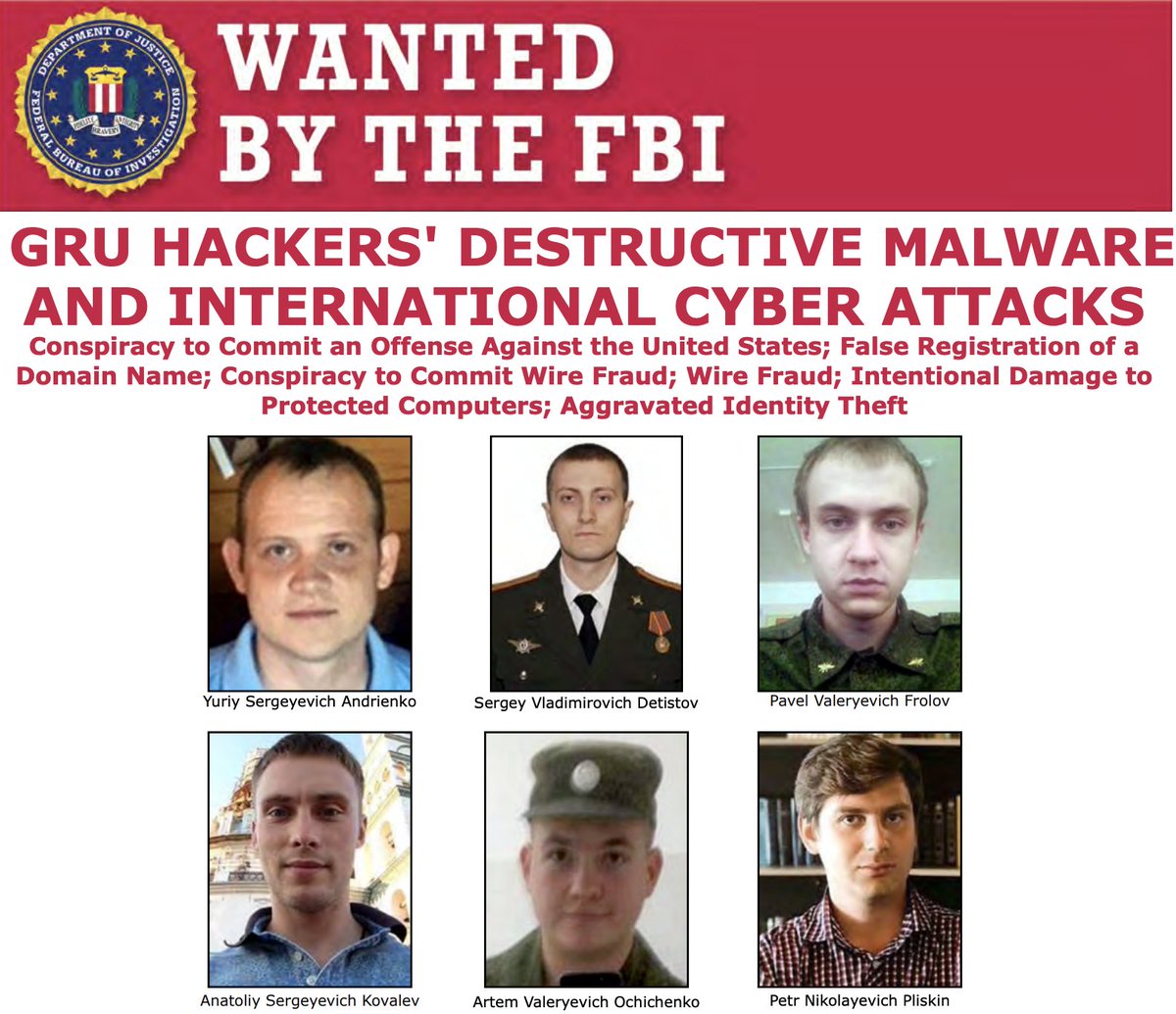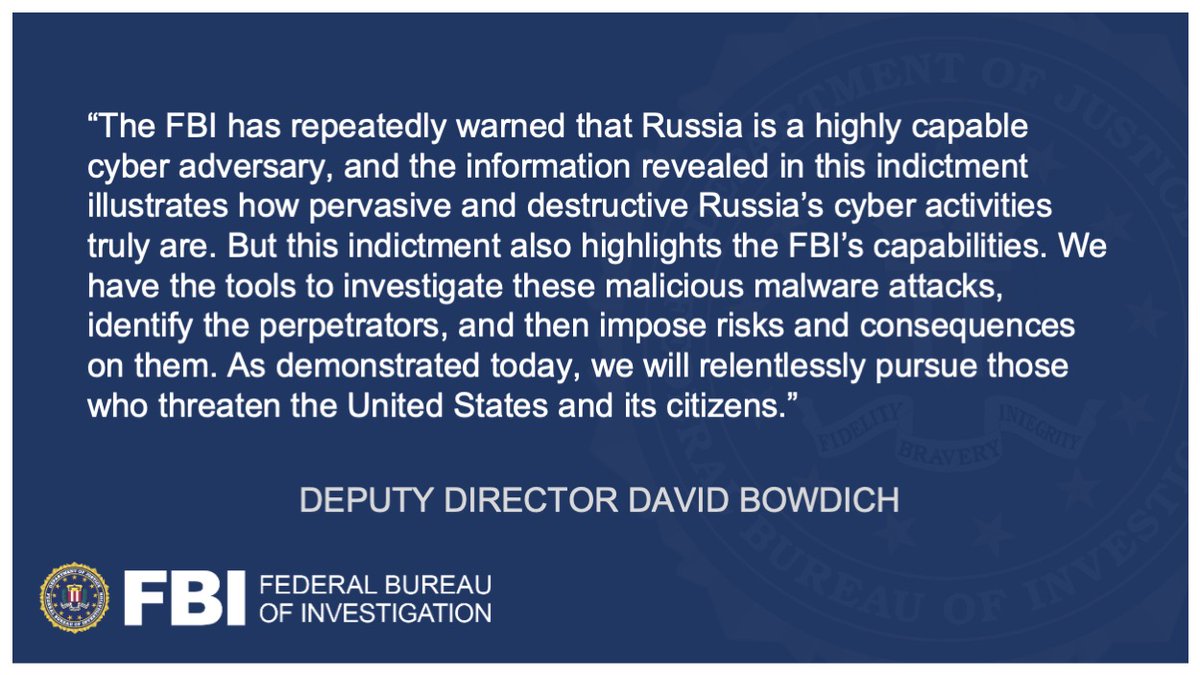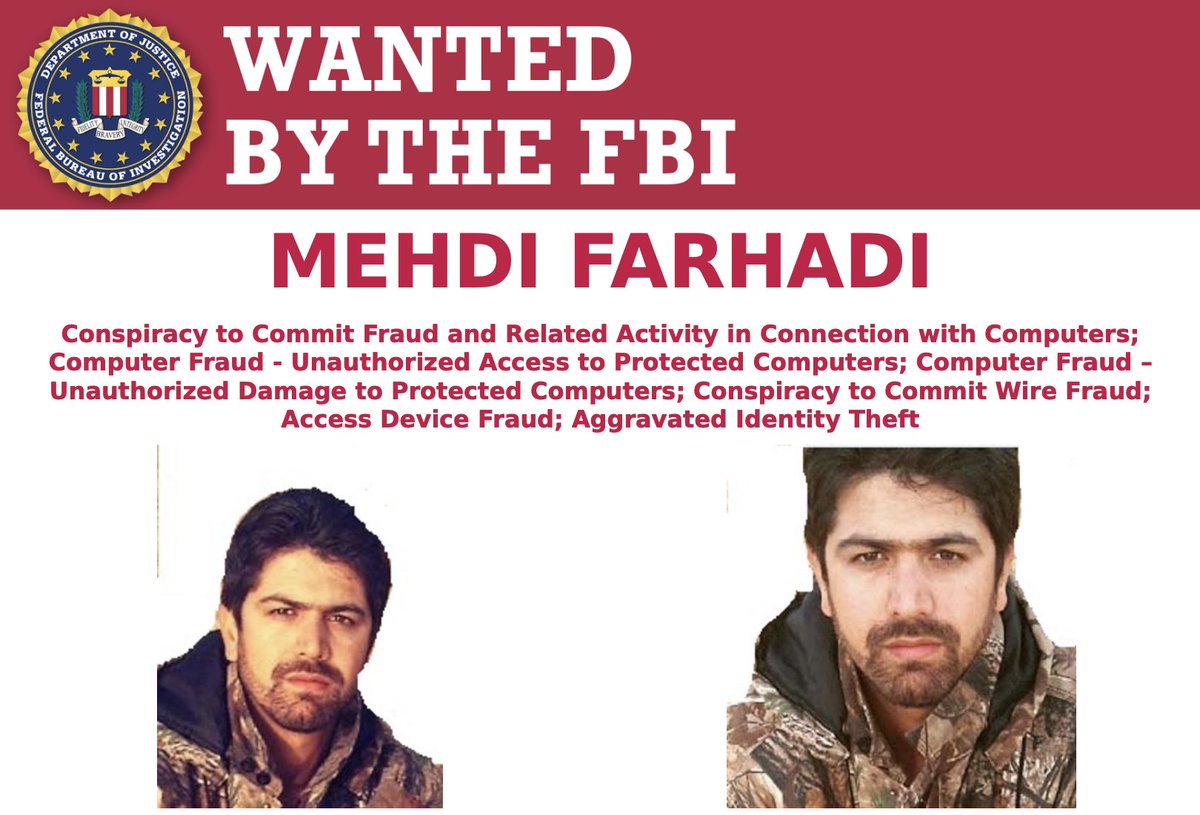
#FBI Deputy Director David Bowdich will join our partners from the @TheJusticeDept for a press conference today regarding a national security matter. You can watch live at 1 p.m. EST via justice.gov/live.
The #FBI and our partners have announced that a federal grand jury returned an indictment charging six Russian military officers with the worldwide deployment of destructive malware through unauthorized access to victim computers. ow.ly/DXfA50BWEiQ 

The cyberattacks targeted computer systems related to Ukraine's critical infrastructure; a French political campaign; the 2018 Pyeongchang Games; and investigations into the nerve agent poisonings of Sergei Skripal, his daughter, and several U.K. citizens. ow.ly/szXi50BWENM 

During the press conference today, Deputy Director Bowdich addressed numerous destructive cyberattacks perpetrated by the GRU—Russia’s military intelligence agency. ow.ly/g7Q150BWHpP
Bowdich: Time and again, Russia has made it clear they will not abide by accepted norms, and instead, they intend to continue their destructive and destabilizing cyber behavior. Of course, this threat is not new. We’ve been fighting the cyber threat for years now.
Bowdich: We investigate one major hack, only to uncover another one. These actors ... are alleged to have developed and deployed the NotPetya destructive malware, which wreaked havoc across the entire globe.
Bowdich: These actors conducted these brazen attacks from the safety of their own country, but that does not mean that we should not and will not pursue them and hold them accountable.
Bowdich: Whether you’re a cybercriminal turning profit from hacking or a Russian military intelligence officer who's intent on taking down infrastructure, these attacks will not be tolerated.
Bowdich: We’re going to continue to work together with our partners both at home and abroad, in law enforcement and in the private sector, to stop brazen cybercrime and hold these people accountable.
• • •
Missing some Tweet in this thread? You can try to
force a refresh









